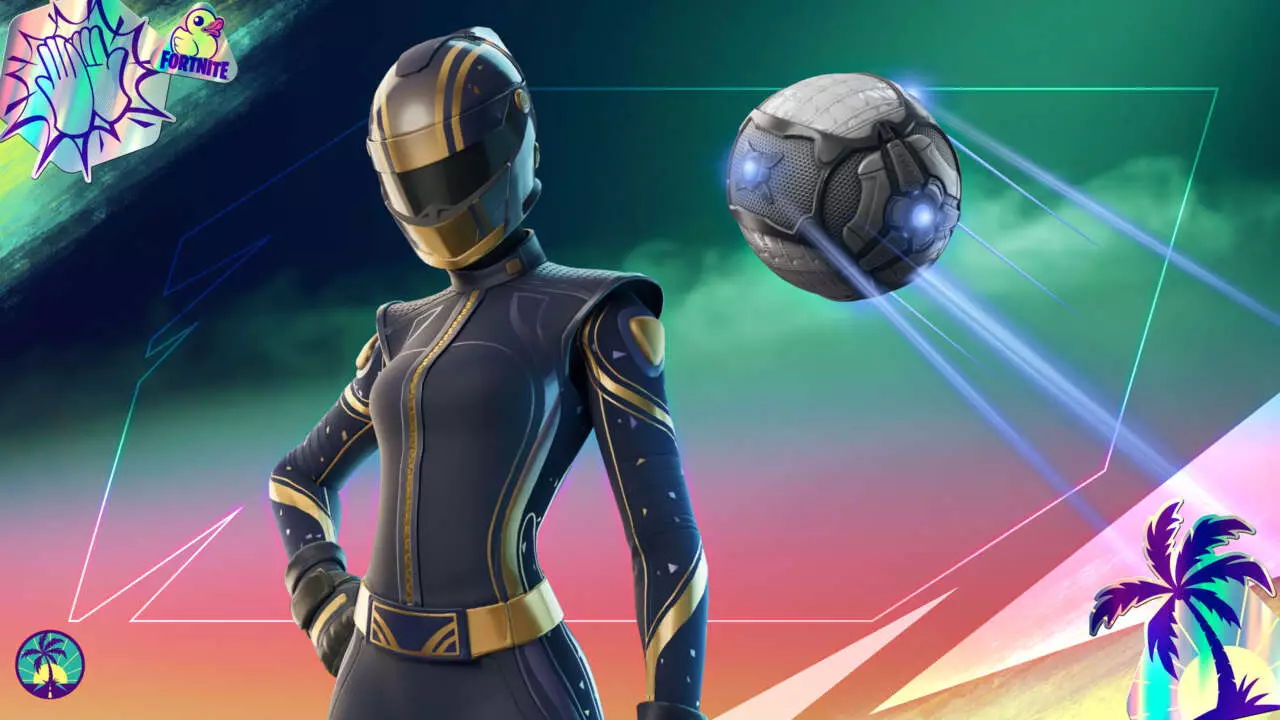This year’s Summer Road Trip event stands out as a dazzling example of how gaming giants can creatively intertwine their worlds to captivate players. Rocket League, celebrating its decade-long journey, joins forces with Fortnite, one of the most popular battle royales, to create a crossover extravaganza that promises not just fun but exclusive rewards. The event is more than mere promotion; it’s a strategic move that fuses competitive gameplay with celebratory incentives, elevating the summer gaming landscape to new heights. The centerpiece—a sleek Chevrolet Corvette ZR1—serves as a coveted prize, with both games offering players a chance to earn it through a series of engaging quests. While the event’s core rewards are enticing, its true brilliance lies in the way it encourages players to explore both titles intimately, blurring the lines between different gaming experiences and fostering a broader community engagement.
Strategic Rewards That Amplify Player Investment
At the heart of this collaboration is the alluring Corvette ZR1, a vehicle that embodies power, elegance, and exclusivity. Yet, the event’s true genius is in its layered reward system, which offers players multiple incentives at various stages. Fortnite players can earn a variety of items like a pickaxe, a wrap, and an exclusive music track by The Red Hot Chili Peppers—“The Zephyr Song”—but only by engaging deeply with Rocket League’s quest system. Conversely, Rocket League’s rewards include the Skin Hairpin, a stylish reinterpretation of an existing esports favorite, and a colossal Rocket League ball that doubles as a glider, bringing a delightful twist to aerial gameplay. This strategic distribution of rewards incentivizes cross-game participation, making players invested in both, while simultaneously heightening the allure of earning the headline prize—the Corvette ZR1. The approach underscores how integrated event design can elevate player motivation, not just through immediate gratification but also by fostering a sense of achievement tied to both gameplay and community participation.
Gameplay as the Pathway to Rewards
Earning these highly sought-after items requires a series of deliberate gameplay actions—an expedition that tests both skill and perseverance. Rocket League’s quests are straightforward yet cleverly designed, from playing private matches with custom mutators to scoring epic saves in online matches. These objectives are accessible for casual players but also offer depth for those seeking to optimize their approach. For example, players can exploit Heatseeker mode’s natural tendency to direct the ball toward the goal, maximizing their chances of completing save-based challenges efficiently. Meanwhile, the requirement to rack up assists, goals, and epic saves encourages diverse playstyles, from defensive strategists to offensive powerhouses. What’s compelling here is that these quests push players to actively engage with game mechanics, transforming casual matches into purposeful missions that contribute to a larger goal. The event subtly champions skill development while rewarding dedication, making the journey just as meaningful as the prize itself.
Limited-Time Opportunities & Their Impact
Time sensitivity plays a significant role in keeping players motivated. With Rocket League’s event wrapping up on August 4, the pressure to complete quests and unlock the Corvette’s wheels adds an adrenaline-fueled element to the summer festivities. One noteworthy aspect is the final step that involves playing five online games with the ZR1 wheels equipped—a time-gated challenge that compels players to dedicate specific periods to this event. Such constraints serve two purposes: they generate a sense of urgency, spurring players to prioritize these tasks, and they ensure sustained engagement over the event’s limited window. However, this approach can be a double-edged sword. While it maintains excitement, it might also alienate causal players who lack the time or inclination to grind within a set timeframe. Nevertheless, the approach underscores an important aspect of modern gaming events—balancing accessibility with exclusivity to maximize community participation.
Community, Competition, and the Power of Celebration
Ultimately, the Rocket League-Fortnite summer event reflects a broader trend in video game culture: the demand for shared experiences that transcend traditional boundaries. By offering cross-title rewards, Epic and Psyonix are fostering a sense of unity among their respective audiences. The event is not merely about unlocking a fancy car or skins; it’s about celebrating the ten-year legacy of Rocket League while leveraging Fortnite’s massive player base to draw new audiences into both worlds. Such collaborations serve as proof that gaming communities thrive on interconnectivity and shared incentives, encouraging players to see these titles not as isolated experiences but as parts of a larger, interconnected universe.
In essence, this Summer Road Trip event exemplifies how well-designed cross-promotional campaigns can invigorate communities, spark new strategies, and create memorable moments that resonate long after the event concludes. It’s a bold reminder that the power of gaming lies not just in individual mastery but in its capacity to unite players through compelling challenges and exclusive rewards—making every summer session an unforgettable adventure.

